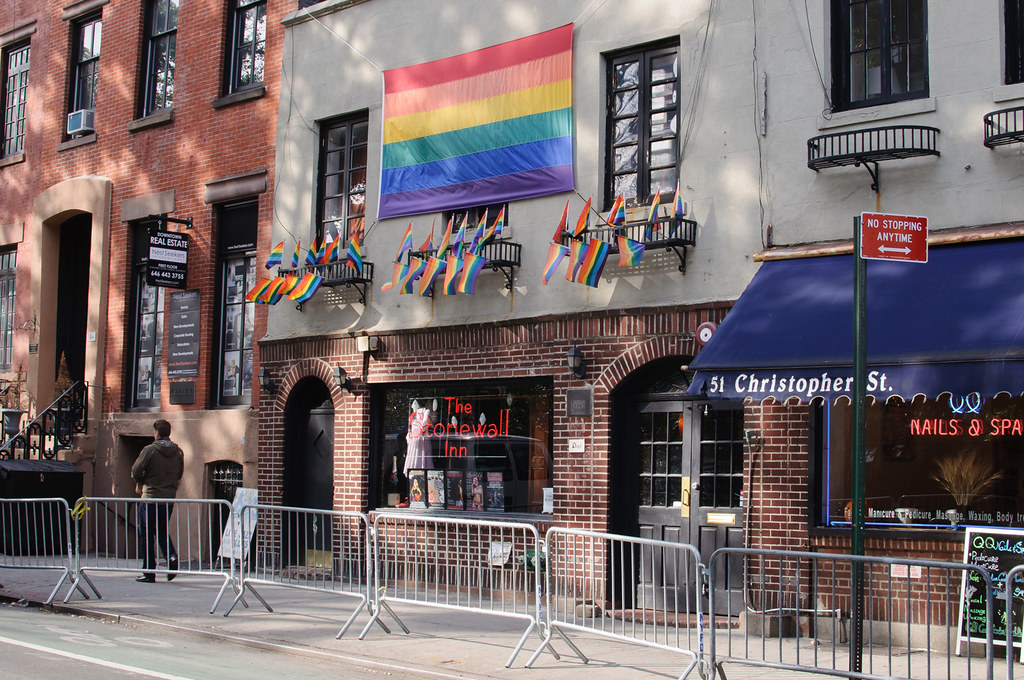The Stonewall Riots (June 28, 1969)
In 1969, a riot at the Stonewall Inn (later known as the Stonewall Riots) became a turning point in the fight for LGBTQ civil rights. Though few records of the actual raid and riots that followed exist, the oral history of that time has been captured by the participants -- both those who rioted and the police. The Stonewall Riots ignited after a police raid took place at the Stonewall Inn. The tension from ongoing harassment galvanized the LGBTQ community to riot for six days. The protest through the streets of New York City is memorialized as the annual Gay Pride parades that are now celebrated around the world.
It's very American to say, 'This is not right.' It's very American to say, 'You promised equality. You promised freedom.' And, in a sense the Stonewall Riots said, 'Get off our backs. Deliver on the promise.' So in every gay pride parade every year, Stonewall lives. -Virginia Apuzzo, quoted in American Experience: Stonewall Uprising (complete transcript available here).
Selected Library Resources:
- Phil C.W. Chan and Desmond Tutu, Protection of Sexual Minorities Since Stonewall: Progress and Stalemate in Developed and Developing Countries, K3242.3 .P76 2010
- John D'Emilio and Thomas A. Foster, Long Before Stonewall: Histories of Same-Sex Sexuality in Early America, HQ76.3.U5 H57 2007
- Nicholas C. Edsall, Toward Stonewall: Homosexuality and Society in the Modern Western World, HQ76.3 .E37 2003 and available as an ebook
- Vern L. Bullough, Before Stonewall: Activists for Gay and Lesbian Rights in Historical Context, available as an eBook (2002) through Howard Libraries
Relevant subject headings:
- Gay rights -- United States -- History
- Gay liberation movement -- United States -- History
- Sexual minorities -- United States -- History